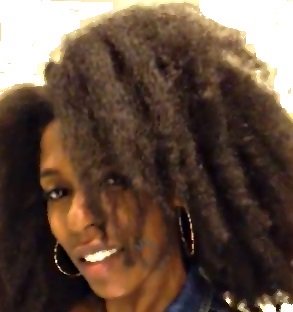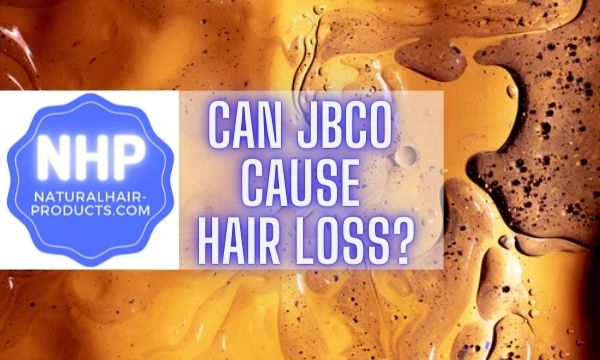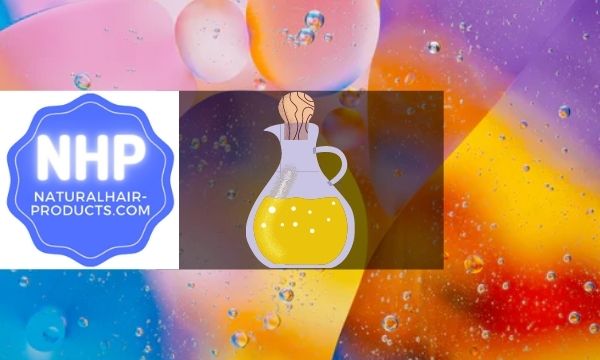Can Jamaican Black Castor Oil Cause Hair Loss? [THE TRUTH]
- NHP
- Hair Growth 101
- Hair Growth Oil
- Can Jamaican Black Castor Oil Cause Hair Loss
Can Jamaican black castor oil cause hair loss? Although usually known for hair growth help, the answer is that when used incorrectly, yes, JBCO can cause hair loss.
It's true, and I'll explain why...
Because castor oil is very astringent in nature, using it wrong can cause irritation to the scalp skin.
This irritation could even result in hair loss because of excess sensitivity and dryness.
In fact, there have been a lot of instances where women have developed dermatitis after using Jamaican black castor oil for hair.
Can Jamaican Black Castor Oil Cause Hair Loss?
Asking "Can Jamaican black castor oil cause hair loss?" may seem weird for the average user of JBCO, because combining the words Jamaican black castor oil and hair loss are typically only conveyed positively.
I mean, let's keep it 100... It's dang-near seen as a "holy Grail" product for many of the NHP-hive & naturals worldwide.
Other than "Wild Growth" brand hair serum for edges, JBCO may be the most popular choice for naturals.
After all, JBCO provides impressive results for those who might be dealing with hair loss. This article will turn into a testimony of all of the reasons you might want to try JBCO on your scalp and hair – BUT is it true? Can Jamaican black castor oil cause hair loss too?
Answer: Yes. There are anecdotal reports of Jamaican Black Castor oil causing hair shedding or hair loss in some individuals, especially when used the wrong way.
Here are two common reasons you might experience hair loss after applying JBCO.
#1 - Allergic Reactions Can Cause Hair Loss From Jamaican Black Castor Oil
It is not uncommon for people to experience allergic reactions to essential oils and other hair growth oil serums after applying them to their skin or scalp.
For this reason, you should always test a small area of your skin or scalp before applying any oil or product over large areas. Can Jamaican black castor oil cause hair loss? Yes, if an allergic reaction causes hair fall.
Allergic reactions often lead to irritation and inflammation of your scalp. If the reaction is severe enough, it can lead to thinning hair or hair loss over a period due to an unintentional disruption of blood flow to the region and the hair growth cycle.
If you experience an allergic reaction, you should discontinue the use of the oil immediately and monitor for hair loss.
#2 - Too Much of A Good Thing Can Cause Hair Loss From Jamaican Black Castor Oil
The lure of JBCO and its benefits can sometimes get you into trouble if you apply too much of this oil to your scalp. Too much of a good thing can sometimes affect your scalp and hair.
Should this occur, try backing down your frequency of use of JBCO. Also, be cautious of the oils you combine with JBCO. This can also cause an adverse effect that leads to hair shedding.
Benefits of Using Jamaican Black Castor Oil for Hair
Jamaican black castor oil offers a variety of benefits for your scalp and hair. Jamaican Black Castor oil (JBCO) is a thick oil that many naturalistas relish for its conditioning and restorative properties. The natural hair community holds this oil in high esteem because, for the most part, its results for women with kinky, coily hair is, in fact, undeniable.
Let it be known that Jamaican black castor oil is not the same as castor oil. There are distinct differences related to pH levels, how the oils are processed, and the color.
Jamaican black castor oil is an alkaline solution vs. castor oil which is an acidic oil. JBCO is a dark brown or black, whereas castor oil is lighter in appearance, closer to a pale shade of yellow. Here are some more benefits:
- Hydration. This solution functions as a fantastic moisturizing agent on natural hair. Its properties enable it to seal in moisture, which is a tremendous asset for anyone seeking to strengthen their hair.
- Prevents Breakage. Thanks to its hydrating properties, JBCO is seen as a solution that helps to minimize breakage. It softens and detangles hair, helping to promote manageability, and it decreases the risk for gnarly split ends.
- Thickens Hair. JBCO receives high ratings for its ability to increase the rate and thickness at which hair grows thanks to its ability to increase blood flow to the scalp region, carrying vital nutrients to your precious hair follicles.
- Treats Dry Scalp and Dry Hair. This oil is soothing and helps relieve dry, itchy scalp resulting from dandruff, eczema, and other conditions. JBCO has anti-inflammatory, antibacterial, and antifungal properties that enable it to masterfully treat conditions that can be detrimental to healthy hair growth.
{RELATED ARTICLE: Can hemp oil regrow hair?]
Common Uses of Jamaican Black Castor Oil For Hair Loss Prevention & Growth
There are many ways to apply JBCO to your hair. Naturalistas love to add JBCO to their premium hair conditioners for increased deep-conditioning, pre-poos and even use it as a hot oil treatment.
- Deep Conditioning Options
You can add a tablespoon of JBCO to your favorite deep conditioner to enhance the moisturizing properties. Take care to evenly disperse the solution, then rinse your hair carefully.
- Pre-Poo Mixtures
JBCO is a dense oil, but naturalistas love this oil for its extra slip and ability to remove build-up. It is particularly effective in those with naturally thick hair. However, Jamaican Black Castor Oil can be a bit heavy for individuals with finer hair; therefore, it will be essential to remember that a little bit goes a long way.
For best results, before washing your hair, apply JBCO from root to tip. Take the time to massage this oil into your scalp and reap the full benefits of this solution. Cover your hair with a plastic cap and leave it in place for a minimum of 30 minutes. You can sit under a dryer if you like to boost penetration, or you can wrap your hair in a warm towel.
- Hot Oil Treatments
Many naturalistas use JBCO as a hot oil treatment, massaging this oil into their scalp and hair. To start, warm the oil in an application bottle in a sink of warm water. Always take care to not overheat the water as you want to avoid scalding your scalp or skin.
After generously massaging this oil into your hair and scalp, apply a thermal or plastic cap. If you have a hooded dryer, sit under the dryer for 15 to 30 minutes. Rinse your hair with cool water.
[RELATED ARTICLE: Is argan oil bad for hair?]
Castor Oil For Hair Side Effects (Other Than Hair Loss)
We need to discuss Jamaican black castor oil for hair side effects. Because some people are allergic to castor oil, and it can also cause side effects.
In rare cases, using castor oil as a hair treatment can lead to acute hair felting. This is when the hair becomes entangled into a hard mass. In this case, the only solution is to cut off the affected hair.
There’s some concern that using castor oil as a hair treatment may lead to acute hair felting—a rare disorder in which the hair becomes entangled into a hard mass.
In this condition, the hair becomes twisted, entangled as a hard stony mass resembling a bird's nest. Sudden hair matting has been reported after vigorous use of certain chemicals and herbal shampoos.
Since the condition is irreversible, the only solution is to cut off the affected hair.
It should also be noted that consuming large amounts of castor oil can be extremely harmful and trigger a number of adverse effects, including:
- Abdominal cramps
- Diarrhea
- Dizziness
- Hallucinations
- Fainting
- Nausea
- Shortness of breath and chest pain
- Skin rash
- Throat tightness
- Precautions and Concerns
Since Jamaican black castor oil can cause stains, it’s best to wear an old T-shirt (or any cloth that you don’t mind staining) when using castor oil on your hair.
Castor oil can also stain towels, so make sure that your hair is thoroughly washed prior to towel-drying.
Keep in mind that your hair may require two applications of high-quality shampoo in order to completely remove the JBCO.
If you’re thinking of using Jamaican black castor oil for hair growth or as a remedy for hair loss, remember that excessive hair loss may be a sign of an underlying health problem.
Therefore, it’s crucial to speak to your medical physician as soon as possible if you’re experiencing unexplained hair loss.
[RELATED ARTICLE: Is Alikay naturals hair growth oil good?]
The Wrap Up: Can Jamaican Black Castor Oil Cause Hair Loss
In closing this "Can Jamaican black castor oil cause hair loss" conversation, let's be clear...
Jamaican black castor oil can provide a wealth of benefits for your scalp and hair. There are dozens of reports of this therapeutic oil delivering positive results. Of course, as with any oil, you should proceed with caution and monitor for adverse effects on your hair and scalp.
There are reports that JBCO can trigger an allergic reaction in some individuals, contributing to hair loss.
Additionally, excessive use of this product may not work so well for some people, and therefore, if you notice a change in your results, you should consider modifying your JBCO treatment regimen.
I hope you enjoyed this NHP tutorial about "Can Jamaican black castor oil cause hair loss", you may also enjoy this how to use JBCO for faster hair growth article...
Follow Author of "Can Jamaican Black Castor Oil Cause Hair Loss?" Article...

ABOUT THE AUTHOR: Melissa Lee
Melissa Lee is a Contributing Editor to NHP and a former owner of the BlackhairOMG website. She formed 4C Trichology Growth Services, LLC., a US based hair care consultation service. She has also contributed as a writer and consultant for various hair and beauty websites. Melissa can be followed on Twitter here.



